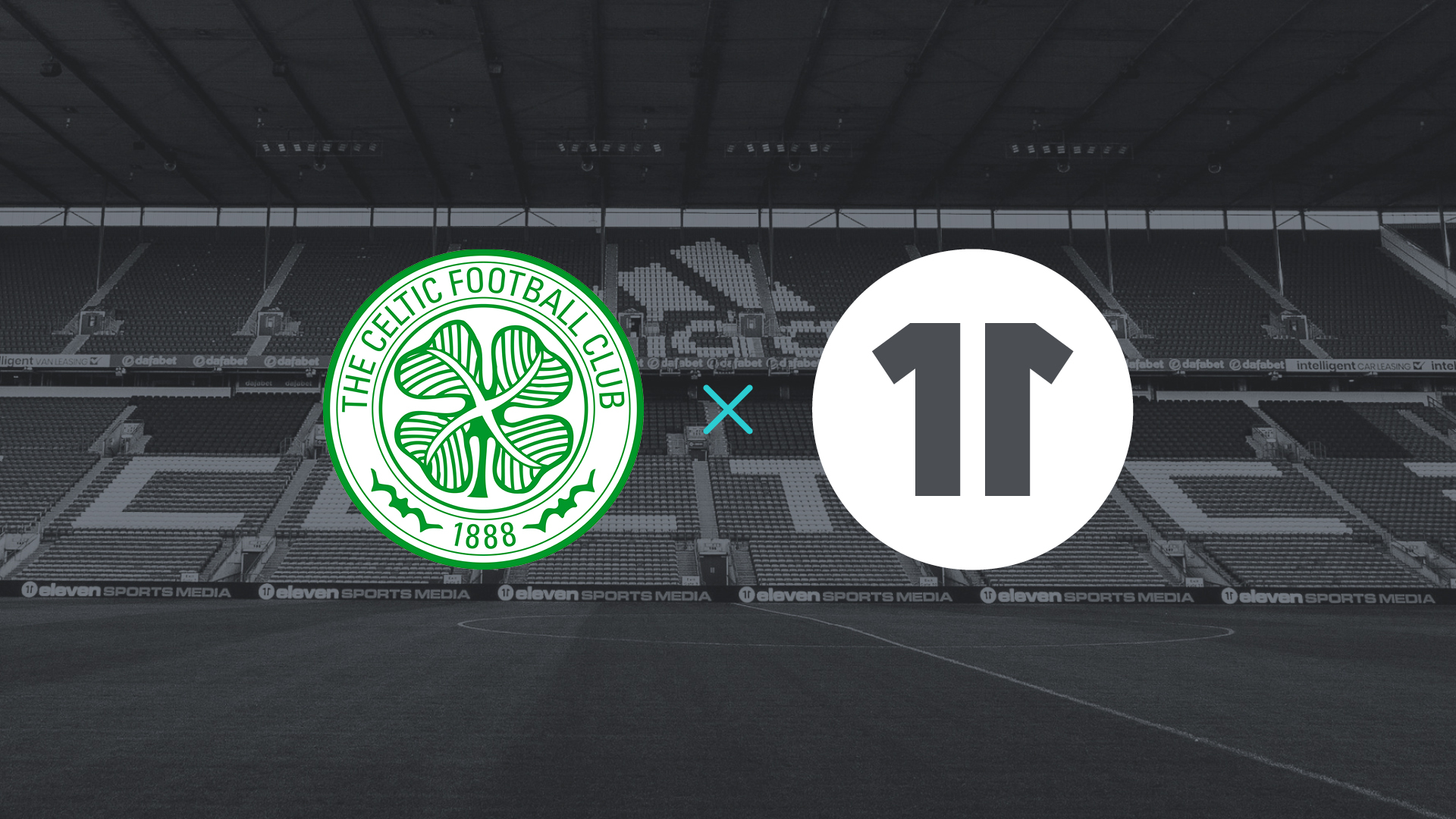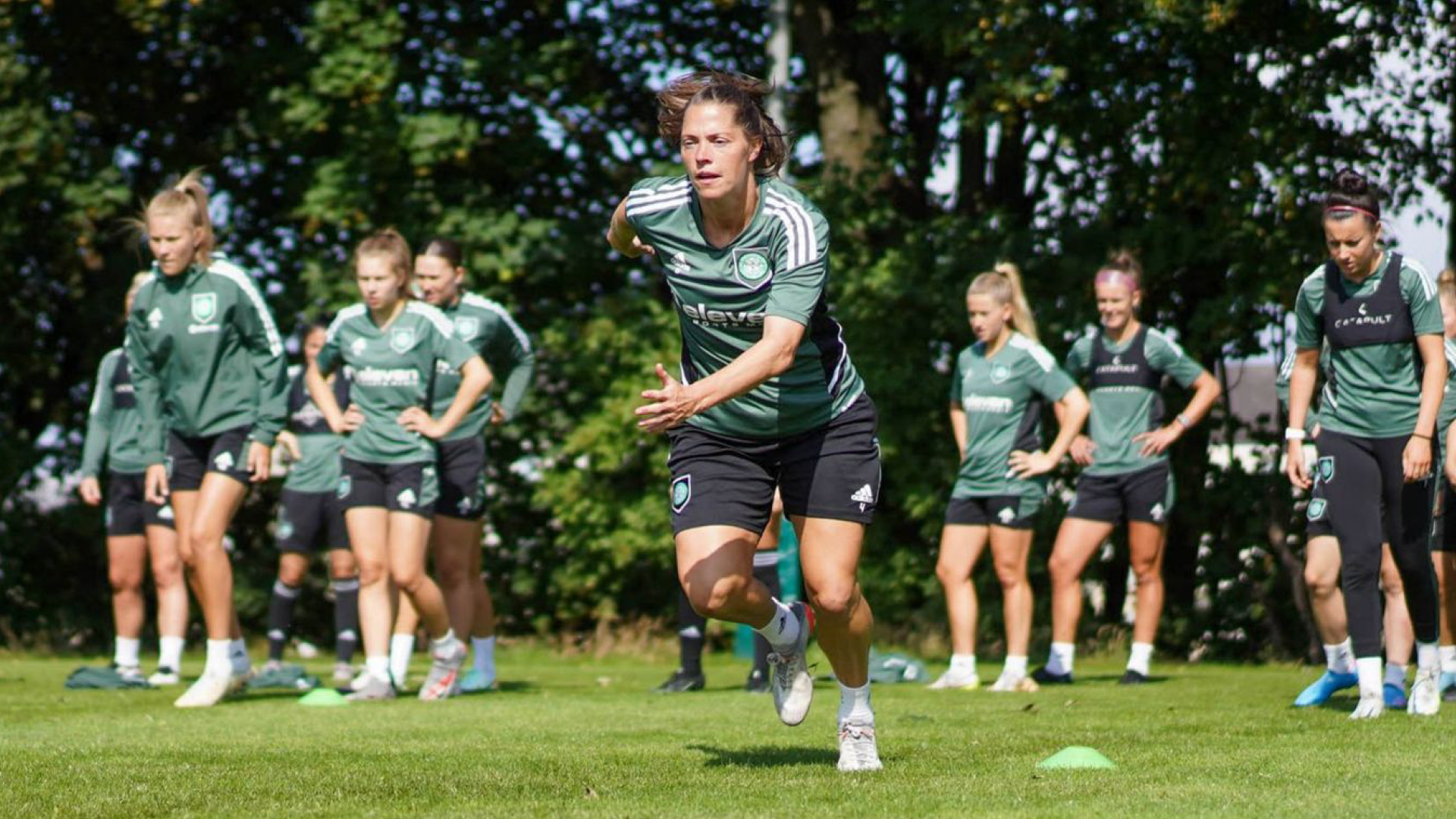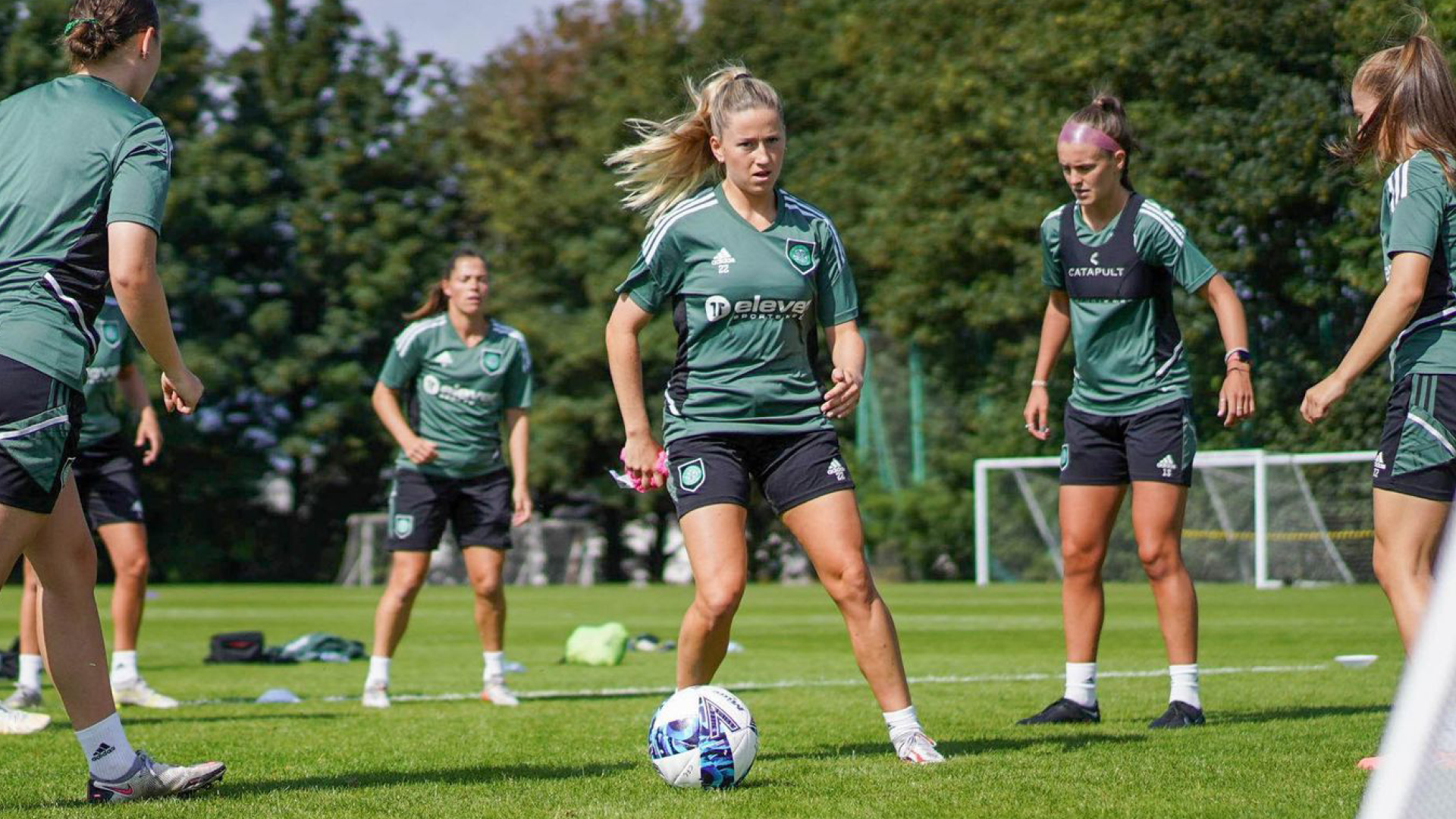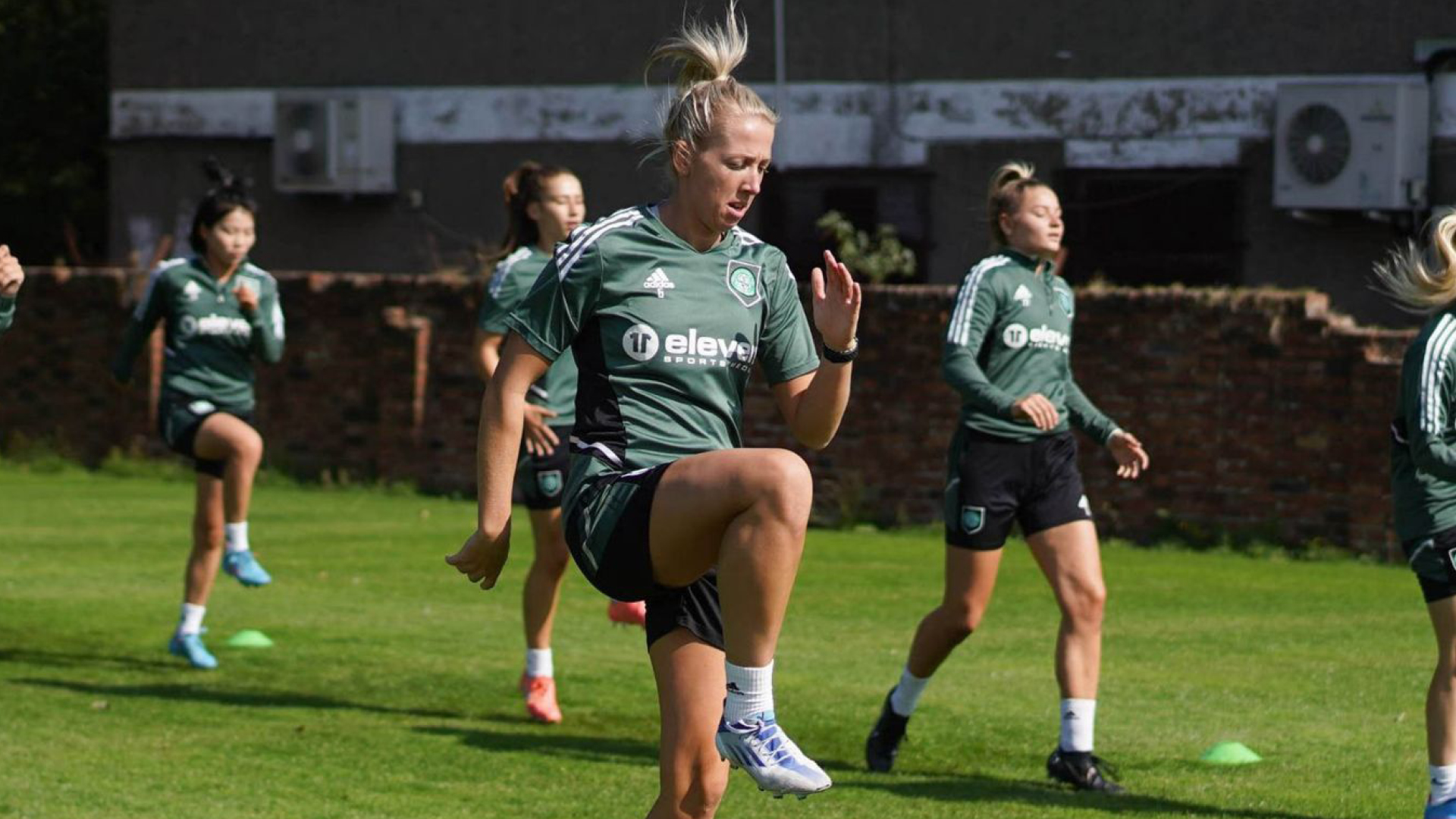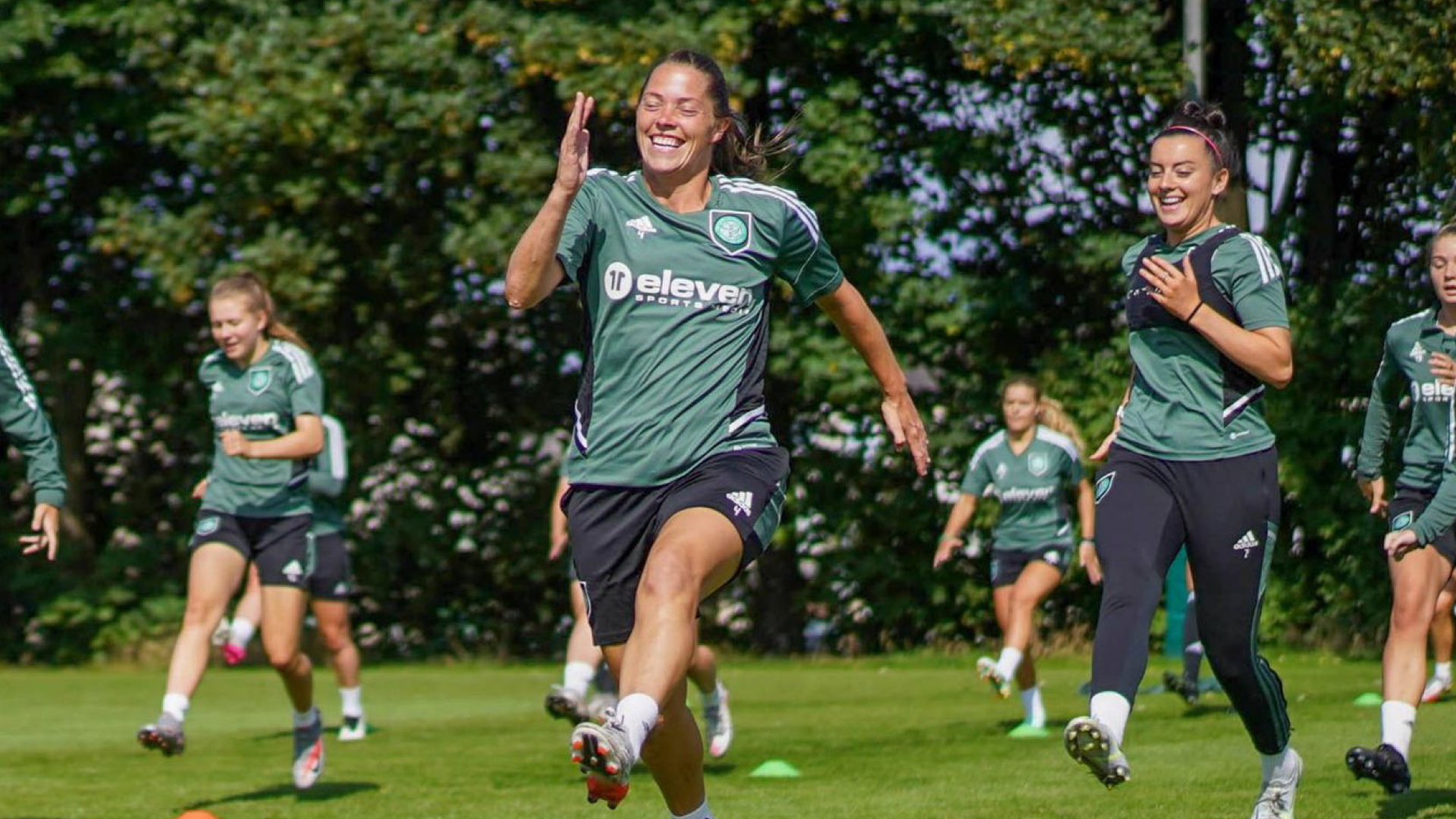We speak to David Haley, assistant manager of Celtic FC Women, about the professionalisation of the women’s team, and the important role it plays in the community
January 2020 was massive in Celtic Football Club’s history. On January 7, its Women’s team moved to professional status for the very first time.
On announcing the significant news two years ago, Celtic said, “We are delighted to be leading the way in this area in Scotland and we are sure our move to professional status is one which will be hugely beneficial for the club and our players. Our new professional arrangement aims to provide the same opportunities for women wishing to play the game at all levels as we currently do for men – as a club famously open to all, this is hugely important to us.”
The move has clearly paid off, both off and on the pitch. Back in May, a dramatic 3-2 win over Glasgow City at Tynecastle Park sealed Celtic FC Women’s first Scottish Cup win, and their first-ever Cup double. Last season also saw the team set foot in the Champions League for the first time and, with the new season just under way, Celtic FC Women are a club in the ascendancy.
Eleven Sports Media was incredibly proud to play a part in Celtic FC Women’s move to professionalism, with our name on the first-team’s training wear right from the start of the club’s professional journey.
That was an extension to our partnership with Celtic, which sees Eleven help the club form meaningful relationships with its local business community, and deliver our award-winning StadiumTV and StatTV technology to the iconic Celtic Park on matchdays, and via StatZone through the club’s official social media platforms.
We extended the partnership earlier this year, adding front-of-shirt sponsorship of Celtic’s B team to our thriving partnership.
With the professionalisation of Celtic FC Women having a positive impact on the local and wider community, it is something that forms a key part of our core values at Eleven.
Opening up opportunities
David Haley, Celtic FC Women’s assistant manager, has been an integral part of the Women team’s journey for over a decade.
He started off in Celtic’s community department, working with schools in a coaching capacity, before getting involved in the Women’s Academy in 2009. He was manager for five years from 2013, before taking on the role of manager of the Women’s Academy. He became assistant manager in 2019.
“We’d spoken about turning professional for quite some time,” he says. “For us it was about getting the process right, and making sure it fitted into the model at Celtic.
“It absolutely had to be sustainable. We couldn’t just throw money at it and hope for the best – we wanted to ensure we were planning for five, 10, 20 years in the future to ensure we had a long-term vision.”
In 2019, the building blocks were put in place that led to turning professional in 2020. That included looking for commercial partners, and introducing prize money into the setup. With money came more freedom – and opportunity.
“Now, we have a commercial team that sets up sponsorship deals and brings in commercial partners,” says David. “Partners like Eleven Sports Media are helping us to become more sustainable and even more professional.
“Without Eleven, and the local partners we have on board, we wouldn’t be able to continue as a professional team. It allows us to move forward and to continue to provide for the girls in the Academy, and provide them with opportunities they wouldn’t otherwise get.”
Investing in the future
The professionalisation of the sport means opportunities are now far more readily available to girls in the local community.
“It’s great to be able to have that pathway for girls,” says David. “Five years ago it would have been difficult for a Scottish girl to have seen football as a career choice in Scotland. Previously you could promise a girl in the Academy that you’d make them a better player, but that they might have to look for a contract in Scandinavia, or Germany, or England.
“Now, there’s a system in place that means girls can get a professional contract in Scotland, and that makes such a huge difference.”
As well as offering talented girls the opportunity to make it as a professional footballer, professionalisation has boosted the way women’s football is seen across Scotland – and beyond.
“We’re getting so many more fans coming to games,” says David. “Our players are also being asked to so many more media events. You’re getting local schools actively involved, wanting to support and help get more girls involved.
“It’s such a big change, and as well as looking to create history on the pitch, it’s just great seeing the game growing in the community.”

